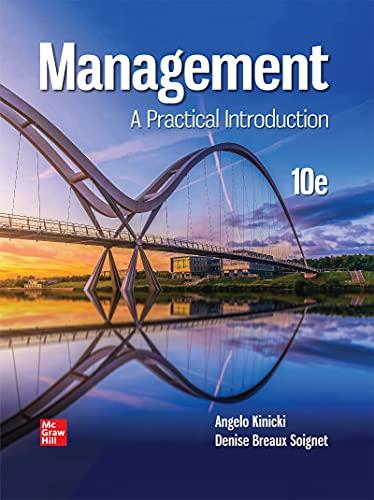Student loan debt nearly tripled between 2007 and 2017, thanks to increased attendance at for-profit colleges along
Question:
Student loan debt nearly tripled between 2007 and 2017, thanks to increased attendance at for-profit colleges along with rising college tuition and living expenses.
233 For hundreds of thousands buried in student loan debt, a little known 1994 program called “Borrower Defense” or “Defense to Repayment” sponsored by the U.S. Department of Education offers a lifeline.
The program is available for those students who obtained loans from the government’s Direct Loan program.
“The law says students are entitled to forgiveness of any existing debt—and, possibly, reimbursement of any repaid loans—if they can show that their school violated state law in getting them to take out the debt.
(An example might be if a school lied in its advertisements about how many of its graduates landed jobs.)
However, it’s not clear what documentation the borrower needs to prove fraud.”234 To date, around 227,000 people have applied to have student loans expunged through the program.235 The Department of Education has already agreed to forgive nearly $150 million in debt and indicated many more will likely get forgiveness.236 Education Secretary Betsy DeVos recently announced that a more stringent set of rules for evaluating borrower defense claims will apply to loans granted from July 2020 forward. Under these new rules, borrowers will have a much higher burden in proving their universities deceived them. There will also be a threeyear deadline to apply for the program once a student graduates or leaves the school. Finally, the program will no longer automatically erase borrowers’ loans when schools close before students are able to complete their degree programs. Now, these individuals will be required to apply for loan cancelations.237 Assume that you recently graduated from a state university. You took the required courses for your bachelor’s degree and excelled in your studies. You made the Dean’s List each semester of your last two years and interned for a social services organization in your community. You hoped you’d be able to work in your chosen field of psychology and be able to pay off the debt a few years after graduation.
Like many students, you paid for the majority of your education with student loans. Three years after graduation, your career has not turned out as expected.
Instead of working in your chosen field of psychology,
you have a low-paying job at a retail chain and wait tables on weekends to make ends meet. You weren’t aware that psychology positions required a graduate degree. Your student loan debt remains unpaid,
and you recently heard about the borrower defense program. You are considering whether or not to apply for the Borrower Defense program.
Questions
What would you do?
1. Apply for loan forgiveness and hope that the broad language of the law will make an exception for your state college education and loan. Besides, what’s wrong with asking?
2. Apply for loan forgiveness. After all, you aren’t benefiting from your education, someone should have told you that you needed a graduate degree in psychology to get a good job, and there is no clear definition of fraud.
3. Don’t apply. You were never promised a job and you made the decision to major in psychology. You could have chosen a field with more job opportunities.
4. Invent other options. Discuss.
Step by Step Answer:

Management A Practical Introduction
ISBN: 9781260735161
10th Edition
Authors: Angelo Kinicki, Denise Breaux Soignet





